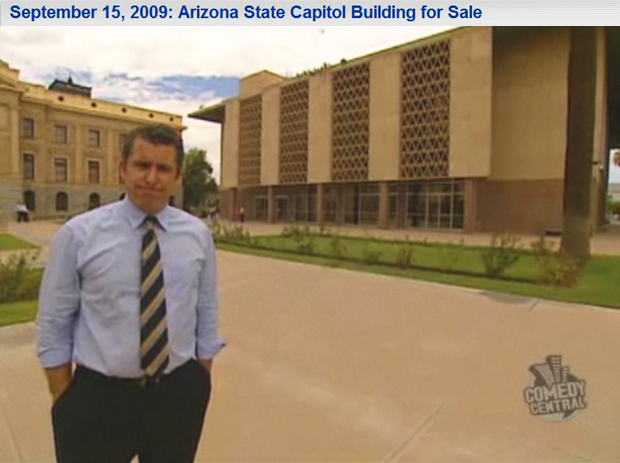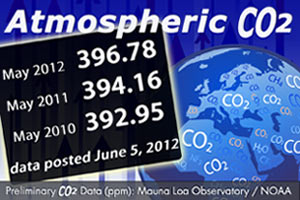Just When You Thought it Was Safe to Catch a Few Solar Rays
As I wrote here recently, the hasty demise of anti-solar House Bill 2701 raised more questions than it answered. One of those questions is: Why did Arizona’s Speaker of the House, Representative Kirk Adams (R), say that HB2060 was evidence that he and his colleagues support solar power and are “send[ing] a clear message to global industries: we want you in Arizona.”
The bill he cited is about land conservation and state parks. It says nothing about renewable energy.
Speaker Adams didn’t return a call, but I reached a House Republican spokesperson and asked him for an explanation.
The bill, he said, may not mention renewable energy, but it shows support for parks and the environment. I pointed out that in his statement, Adams specifically said that HB2060 provides incentives for renewable energy. After a pause, the aide said he’d look into it.
Adams Takes a Mulligan: HB2676
Apparently, he did. Representative Adams’ Web-based press release has been updated. It still has Thursday’s date at the top, but the example of support for renewable power has been changed. The “solar friendly” bill is now listed as HB2676.
On his second try, Adams’ has grabbed what appears to be a plausible brass ring: HB2676. It’s titled: Energy Park Authority.
That sounds solar friendly — or at least supportive of renewables.
On the other hand, the Bush Administration’s “Healthy Forests Act” was a Luntzian device which would have been more properly titled “Leave No Tree Behind.” A measure of strict scrutiny is in order.
The official bill summary reads:
HB 2676 creates the Energy Park Authority (Authority), which administers monies primarily received from a new property class designation for electric generation facilities, in order to facilitate new transmission and renewable or noncarbon based generation facilities.
The bill has two items to please supporters of renewable energy. Under definitions, an Energy Park is defined as:
At least two renewable or noncarbon-based generation facilities and the associated transmission lines interconnected together that are codeveloped for the purposes of receiving incentives…
So far, so good.
Those familiar with the inside workings of the Arizona Corporation Commission — the single most powerful governmental ally of solar and renewable energy in Arizona — tell The Phoenix Sun that the worst part of HB2701 was the legislature’s attempt to destroy ACC’s independence — to take for itself, the commission’s ability to set energy standards and regulations.
No one who knows anything about Arizona politics would claim that if it had been up to the legislature, the state would have adopted a renewable energy standard of 15% by the year 2025.
Clear as Mud
HB2676 seeks to allay the fears of ACC supporters. It includes a clear statement on turf:
Nothing in this chapter diminishes the authority or jurisdiction of the Arizona Corporation Commission as provided by Article XV, Constitution of Arizona.
End of power grab?
Not so, says Sandy Bahr.
While [the bill] says there is no conflict with the powers of the Arizona Corporation Commission, it most certainly seems there is. The people who crafted it either have no idea how the current system works or are deliberately trying to create a big mess or both.
Bahr is the director of the Sierra Club’s Grand Canyon Chapter. She’s either an excellent advocate for the environment or a gadfly slowing down and sometimes stopping the important working of the Arizona legislature — depending on your outlook, ideology and, of course, who signs your paycheck.
Asked to explain her remarks, Bahr points out that the proposed Energy Park Authority would be responsible for power station siting decisions — a job now reserved for the ACC. It’s like proposing a new lawrequiring a panel of pet store owners to set air pollution standards — and inserting a section stating that nothing in the new law diminishes the authority of the Arizona Department of Environmental Quality.
Stalling in the Court
HB2676 would create a constitutional crisis that could take a year or two to be resolved. And during that period the ACC’s hands would be tied. Which is why Bahr thinks it’s possible that the “solar friendly” bill might be designed to create maximum chaos and choke the life out of the state’s solar industry.
Bahr also points to the makeup of the board of directors for the new Energy Park Authority, which would include a senator, a house member, someone from a regulated utility, an expert in transmission planning and a few other members. Looking a the list, Bahr poses a reasonable question:
“If [the Energy Park Authority] is going to be used for siting renewable energy,” she asks, “why no experts with backgrounds in renewable?”
For a bill that’s supposed to be a model of “renewable friendly” legislation, the bill has some other peculiarities. We’ll turn to them, tomorrow.
Then we’ll look at Plan C, which is the greatest threat to the future of solar power in Arizona. It’s also the one most likely to succeed.
Filed under: All, Laws, Renewables, Solar, Southwest, Wind
Trackback Uri











